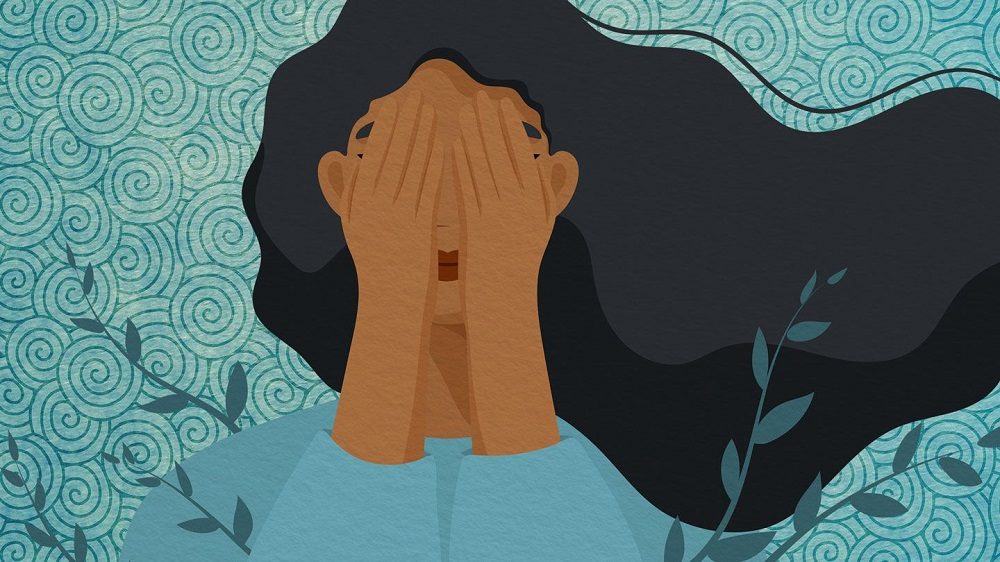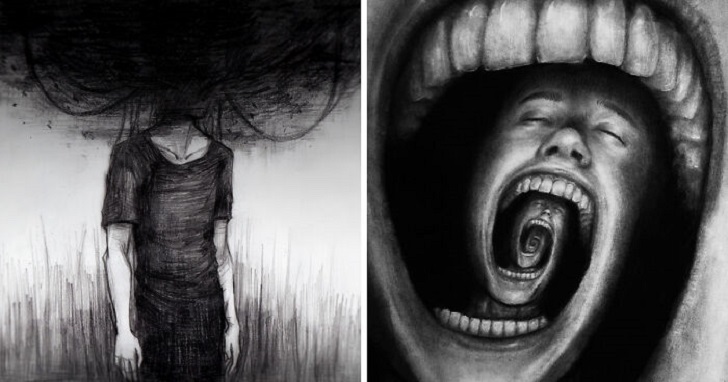
All You Need To Know About Major Depressive Disorder

Major depressive disorder is a severe mental illness affecting millions worldwide. It is characterized by persistent sadness, hopelessness, and a loss of interest in activities that were once enjoyable. This article will explore some facts about the major depressive disorder, including its causes, symptoms, and available treatment options.
Causes

SF/ Shutterstock | Depression is a leading cause of disability worldwide
The exact cause of the major depressive disorder is unknown, but it is believed to result from genetic, environmental, and psychological factors. Some known risk factors for major depression include a family history of depression, chronic stress, trauma, and substance abuse. Other factors contributing to the development of major depressive disorder involve imbalances in neurotransmitters, such as serotonin and norepinephrine, and structural changes in the brain.
Symptoms
The symptoms of major depressive disorder can vary from person to person. Still, the most common symptoms include persistent sadness and hopelessness, a loss of interest in activities that were once enjoyable, changes in appetite and sleep patterns, fatigue, and difficulty concentrating. Other common symptoms of depression include guilt or worthlessness, decreased energy, and thoughts of suicide.
Diagnosis and treatment

SF/ Shutterstock | Chances are, some of your friends or relatives are coping with depression
Diagnosing major depressive disorder typically involves a thorough evaluation by a mental health professional, including a review of symptoms and a medical and psychiatric history. Treatment options for major depressive disorder may include medication, therapy, or a combination. Antidepressant medications, such as selective serotonin reuptake inhibitors (SSRIs), can help to regulate mood and improve symptoms of depression. Cognitive-behavioural and interpersonal therapy can also effectively treat major depressive disorder and may be recommended as a first-line treatment for mild to moderate depression.
Comorbidity
Major depressive disorder is often accompanied by other mental and physical health conditions, such as anxiety disorders, substance abuse, and physical illnesses. This is known as comorbidity, and it can make the symptoms of depression more severe and difficult to manage. For this reason, it is important to receive a comprehensive evaluation and appropriate treatment for depression and any comorbid conditions.
Importance of early intervention
Early intervention is crucial in the treatment of the major depressive disorder, as it can help to prevent the symptoms from becoming more severe and long-lasting. If left untreated, major depression can lead to serious health problems, including an increased risk of suicide and decreased quality of life. For this reason, it is important to seek help as soon as possible if you or a loved one is experiencing symptoms of depression.

Bored Panda/ Getty Images | Most people who have experienced depression know that it is often accompanied by sleeping problems
Stigma and misconceptions
Despite the prevalence of the major depressive disorder, there is still a significant amount of stigma and misconceptions associated with this illness. Some people may view depression as a sign of weakness and hesitate to seek help. However, depression is a natural and treatable illness, and seeking help shows strength and courage.
More in Treatment
-
`
5 Reasons Why Dad’s Side of the Family Misses Out
Family bonds are intricate and multifaceted, often creating a unique tapestry of connections. However, many people notice a peculiar trend: stronger...
July 12, 2024 -
`
A Quick Guide on How to Get Short-Term Disability Approved for Anxiety and Depression
Living with anxiety or depression poses unique challenges, particularly in the workplace, where stress can exacerbate symptoms. For many, short-term disability...
July 5, 2024 -
`
Why Do People Feel Sleepy After Eating?
Is feeling sleepy after eating a sign of diabetes? Well, not directly. There are many reasons why you feel drowsy after...
June 20, 2024 -
`
What Is High-Functioning Depression? Symptoms and Treatment
High-functioning depression may not be a term you hear every day, but it’s a very real and challenging experience for many....
June 13, 2024 -
`
Kelly Clarkson’s Weight Loss Ozempic Journey – Debunking the Rumors
In a refreshing moment of transparency, Kelly Clarkson, the beloved singer and talk show host, sheds light on her remarkable weight...
June 3, 2024 -
`
What Is the Best Milk for Gut Health and Why?
In recent years, the milk section at the grocery store has expanded far beyond the traditional options. While cow’s milk has...
May 30, 2024 -
`
Do Dental Implants Hurt? Here’s All You Need to Know
When you hear “dental implants,” you might wince at the thought of pain. But do dental implants hurt as much as...
May 24, 2024 -
`
5 Key Differences Between A Psych Ward & A Mental Hospital
Curious about the differences between a psych ward and a mental hospital? You are not alone. With the mental health conversation...
May 16, 2024 -
`
It’s Official! “Selling Sunset’s” Christine Quinn & Husband Christian Dumontet Are Parting Ways
Have you ever found yourself unexpectedly engrossed in the personal lives of celebrities, especially when their stories take dramatic turns? Well,...
May 9, 2024










You must be logged in to post a comment Login